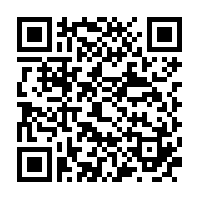Dawoodi Bohras
22 December 2022
The name “Bohra” is a derivation of the Gujarati word “vehvar” which means “honest dealings” or “merchant.” Mostly indigenous Indians, their ancestors converted to Islam at the hands of Fatimid missionaries in the latter half of the eleventh century. The headquarters of the Dawoodi Bohra Community are in India and the community numbers approximately a million members worldwide. Bohras refer to themselves as “Mumineen” (Believers), and to their religious institution as “al-Dawat al-Hadiya” (The Rightly Guiding Mission) or “The Tayyibi Fatimid Mission” — often shortened (with Persianate pronunciation) to “Dawat.”
After moving from Yemen to India, the seat of Dawat moved internally within India to Ahmedabad, Jamnagar, Mandvi, Ujjain, Burhanpur, Surat, and eventually to the current seat of Mumbai. Significant Dawoodi Bohra populations exist today in all these cities and their surrounding regions, and, under the guidance of their Dais, large numbers of Dawoodi Bohras migrated abroad in search of livelihood. Today, large communities exist in East Africa, Southeast Asia, Europe, and North America.
Generally, every town in which the Dai lived developed a large concentration of Bohra residents, and even when the seat of the
mission moved away, these towns continued to host significant numbers of members of the community. Today, in the early twenty-first century, the largest Bohra communities are in Mumbai, Surat, Ahmadabad, Ujjain, Jamnagar, Indore, Dohad, Nagpur, Udaipur, Rajkot, Pune, Kolkata, and Chennai, in India, as well as Karachi, in Pakistan— totaling 800,000 or thereabouts in South Asia. An indigenous Arab community of approximately 13,000 members resides in Yemen (identifying with the term Bohra), and about 200,000 Bohra dwell in diaspora communities in various parts of the world.
Annual Reports
The Annual Report of Dawat-e-Hadiyah - Fatemi Dawat, the administration of the 54th Dai al-Mutlaq Syedna Taher Fakhruddin TUS has a two fold aim: 1)To promote the development of an efficient, professional, compassionate, sustainable administration that will grow dynamically and multifold in the years to come, insha’allah; 2) To inform followers and muhibeen of the Dai al-Mutlaq about Dawat activities and social welfare programs. Learning these details, each Mumin will insha’allah be encouraged to get personally involved in Dawat activities by doing khidmat and contributing their skills and offering their counsel.


